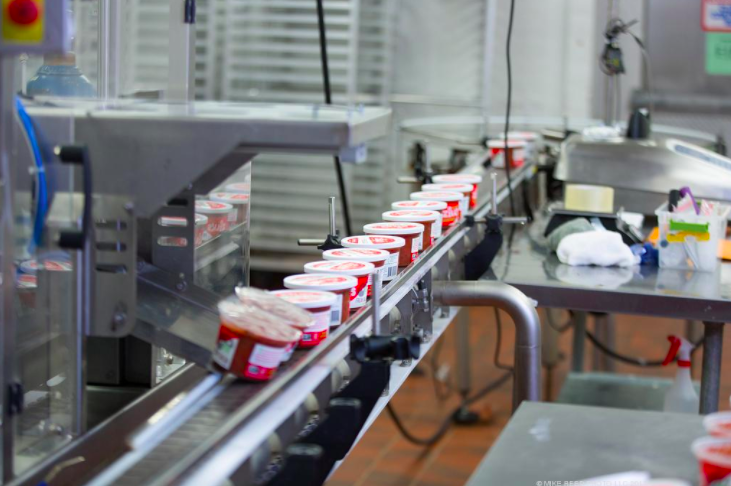If you have dipped fries in a Hopdoddy Burger Bar specialty sauce or indulged in salsa from Julio’s Seasoning & Corn Chips Inc., then you have tasted the wares of ATX Specialty Foods LLC.
The South Austin contract manufacturer of dips, sauces, dressings and marinades has grown out of its 16,000-square-foot Slaughter Lane location — ATX Specialty Foods has secured a new home in the city of Kyle, where it is moving into a new 53,000-square-foot facility.

The consumer packaged goods company will open next to Redbird Flight Simulations Inc. in the Hays Commerce Center, an industrial park developed by HPI Real Estate Services and Investments Inc. along the I-35 corridor. The factory is slated to open this summer.
The expanded production space and headquarters is closer to where the company’s 44 employees live, said John Anderson, ATX Specialty Foods founder and CEO. With the ever-increasing cost of living in Austin, getting access to labor was becoming challenging. Anderson predicted ATX Speciality Foods will now grow to 70 or 80 employees.
The company has maintained positive annual revenue growth over the past several years, including roughly 20% growth in 2021, Anderson said. The year prior, ATX Speciality Foods grew by about 11%, despite the onset of the Covid-19 pandemic.
ATX Specialty Foods expects to differentiate itself from larger employers with a better work culture, a more flexible work environment and by offering team incentives, he added.
The company did not receive incentives from the city of Kyle.
When ATX Specialty Foods began operations about nine years ago, the company was shipping a handful of pallets a week, Anderson said. The company now sells about 100 pallets a week and manufactures 80,000 to 100,000 pounds of products over the same span. That equates to roughly 4 million to 5 million pounds a year.
Many CPG companies have their products made by co-packers, or contract packagers, such as ATX Specialty Foods. Co-packers have expensive manufacturing capabilities that require space and specialized equipment. Rather than opening their own manufacturing spaces, CPG often companies turn to manufacturers like ATX Specialty Foods to make the same product at a lower cost.
For example, ATX Specialty Foods will take a CPG company’s idea and help perfect it or take product blueprints and scale them for larger batches. Not only do co-packers already have the space and machines needed, but they can generally buy goods at cheaper prices due to the volume of purchases.
Once the goods are made, ATX Specialty Foods sells it to the company, such as Julio’s, which then sells it to grocery stores or other restaurants.
Most distribution is in Texas, but ATX Specialty Foods also makes deliveries to the East and West coasts.
Anderson plans to grow as much as possible in the new space, upping production volume 10 times the current levels and making 40 to 50 million pounds of product annually.
The Article is from Austin Business Journal, copyright belongs to owner





